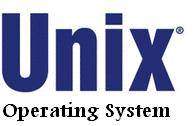Unix-Important Interview Questions
Q1. What is UNIX?
Ans- UNIX is a multitasking, multi-user computer operating system. The UNIX operating system comprises three parts: The kernel, the standard utility programs, and the system configuration files.
Q2. What is a UNIX Shell?
Ans- The shell is a type of program called an interpreter. An interpreter operates in a simple loop: It accepts a command, interprets the command, executes the command, and then waits for another command. The shell displays a “prompt,” to notify you that it is ready to accept your command.

Technical Interview
Q3. Explain the steps that a UNIX shell follows while processing a command.
Ans- After the command line is terminated by the key, the shell goes ahead with processing the command line in one or more passes. The sequence is well defined and assumes the following order.
Parsing: The shell first breaks up the command line into words, using spaces and the delimiters, unless quoted. All consecutive occurrences of a space or tab are replaced here with a single space.
Variable evaluation: All words preceded by a $ are evaluated as variables, unless quoted or escaped.
Command substitution: Any command surrounded by backquotes is executed by the shell which then replaces the standard output of the command into the command line.
Wild-card interpretation: The shell finally scans the command line for wild-cards (the characters *, ?, [, ]). Any word containing a wild-card is replaced by a sorted list of filenames that match the pattern. The list of these filenames then forms the arguments to the command. PATH evaluation: It finally looks for the PATH variable to determine the sequence of directories it has to search in order to hunt for the command.
Q4. What difference between cmp and diff commands in UNIX?
Ans- cmp – Compares two files byte by byte and displays the first mismatch diff – tells the changes to be made to make the files identical
Q5. What is the use of ‘grep’ command in UNIX?
Ans- ‘grep’ is a pattern search command. It searches for the pattern, specified in the command line with appropriate option, in a file(s). Syntax : grep Example : grep 99mx mcafile
Q6. What is the difference between cat and more command in UNIX?
Ans- Cat displays file contents. If the file is large the contents scroll off the screen before we view it. So command ‘more’ is like a pager which displays the contents page by page.
Q7. Write a command to kill the last background job?
Ans- Kill $!
Q8. Which command is used to delete all files in the current directory and all its sub-directories?
Ans- rm –r
Q9. Name the data structure used to maintain file identification?
Ans- ‘inode’, each file has a separate inode and a unique inode number.
Q10. How many prompts are available in a UNIX system?
Ans-Two prompts, PS1 (Primary Prompt), PS2 (Secondary Prompt).
Download important UNIX technical interview questions & answers in pdf UNIX IMPORTANT INTERVIEW QUESTIONS WITH ANSWERS Pdf
Please share your knowledge and suggestions with us, make a comment in the box below. It’s just for you.
Related Links-
Linux OS
Real Time System
Questions on Symbian Mobile Operating System
Schedulers in Operating System
Tell us Your Queries, Suggestions and Feedback
4 Responses to Unix-Important Interview Questions
« Argument Passing Mechanism Important Questions Modulation and Demodulation based Interview Questions »




This article is useful as it consist of important information…..
this post contain all the necessary details which give a the detailed knowledge about the Unix which is the most commonly asked topic in most of interviews and this article best for it …!!!!
This article provides brief but good information regarding “UNIX-Important interview questions”.UNIX is an operating sytem and its questions are mostly asked.
Important concepts and FAQs for the UNIX operating system.